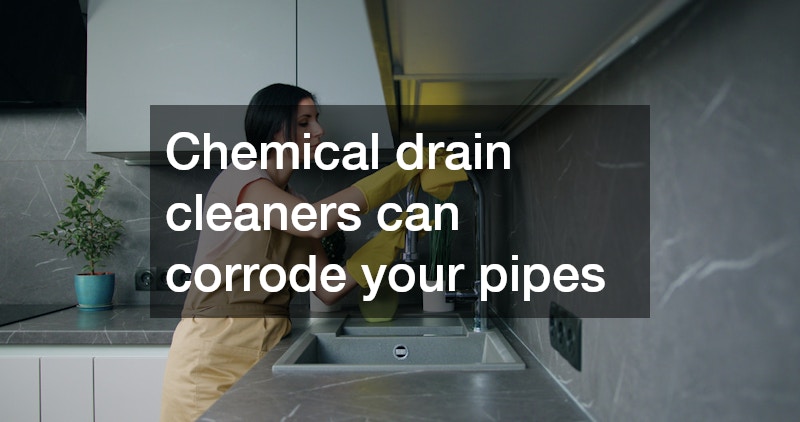How to Fix a Clogged Kitchen Sink Without Damaging Your Plumbing
Dealing with a clogged kitchen sink can be a frustrating experience, but it’s important to address the issue promptly to avoid potential damage to your plumbing system. Explore safe methods for clearing a clogged kitchen sink without harming your pipes and learn when to call in the experts.
Spotting the Signs of Clogged Kitchen Sinks Early
One of the first signs of a clogged kitchen sink is water draining slowly or not at all. You may also notice gurgling sounds coming from the drain or unpleasant odors emanating from the sink. Additionally, water backing up into other sink basins or the dishwasher is a red flag that there’s a blockage in your kitchen sink drain.
Ignoring these warning signs can lead to more serious plumbing issues, so it’s important to address clogged kitchen sinks as soon as possible. By catching the problem early, you can prevent damage to your pipes and avoid costly repairs.
To prevent future clogs, be mindful of what you put down your kitchen sink drain. Avoid disposing of grease, coffee grounds, and large food particles, as these can contribute to blockages over time.
Safe DIY Methods to Clear Minor Sink Blockages
If you suspect a minor blockage in your kitchen sink, there are several safe and effective DIY methods you can try to clear the clog. One common method is to pour boiling water down the drain to help loosen the blockage; while this might resolve clogged kitchen sinks, you should be mindful of the effects of very hot water on your pipes’ sealant. You can also try using a plunger to dislodge the clog by creating suction and pressure in the drain.
An eco-friendly solution is to use a mixture of baking soda and vinegar to break down the clog. Simply pour baking soda followed by vinegar down the drain, let it sit for a few hours, then flush with hot water. This natural remedy can help dissolve organic materials causing the blockage.
If these methods don’t work, you can try using a plumbing snake or auger to physically remove the clog from the drain. Be sure to follow the manufacturer’s instructions when using these tools to avoid damaging your pipes.
What to Avoid: Fixes That Can Damage Your Pipes
While it may be tempting to use harsh chemicals to quickly fix clogged kitchen sinks, these products can actually do more harm than good. Chemical drain cleaners can corrode your pipes over time and cause long-term damage to your plumbing system. Additionally, using excessive force or sharp objects to clear a clog can scratch or puncture your pipes, leading to leaks and costly repairs.
Another common mistake to avoid is pouring hot grease or oil down the drain, as these substances can solidify and create stubborn clogs. You should dispose of grease in a separate container and throw it in the trash rather than risk clogging your kitchen sink drain.
If you are unsure of the best approach to clearing clogged kitchen sinks, consult with a professional plumber. They have the expertise and tools necessary to safely and effectively remove blockages without damaging your plumbing.
When It’s Time to Call a Professional Plumber
If you’ve tried DIY methods and the clog persists, or if you suspect a more serious issue with your plumbing system, it may be time to call in a professional plumber. A licensed plumber can assess the situation, identify the root cause of the clog, and provide a long-term solution to prevent future blockages.
Professional plumbers have specialized equipment, such as drain cameras and hydro-jetting machines, that can effectively remove stubborn clogs without damaging your pipes. They can also inspect your plumbing system for any underlying issues that may be contributing to the clog, such as tree root intrusion or deteriorating pipes.
By entrusting your clogged kitchen sink to a qualified plumber, you can rest assured that the problem will be resolved safely and efficiently, preserving the integrity of your plumbing system for years to come.
Addressing clogged kitchen sinks promptly and using safe DIY methods are key to preventing damage to your plumbing system. By spotting the signs of a clog early, practicing proper maintenance, and avoiding harmful fixes, you can keep your kitchen sink drain running smoothly. When in doubt, it’s always best to seek professional help to assure the longevity of your plumbing system.



